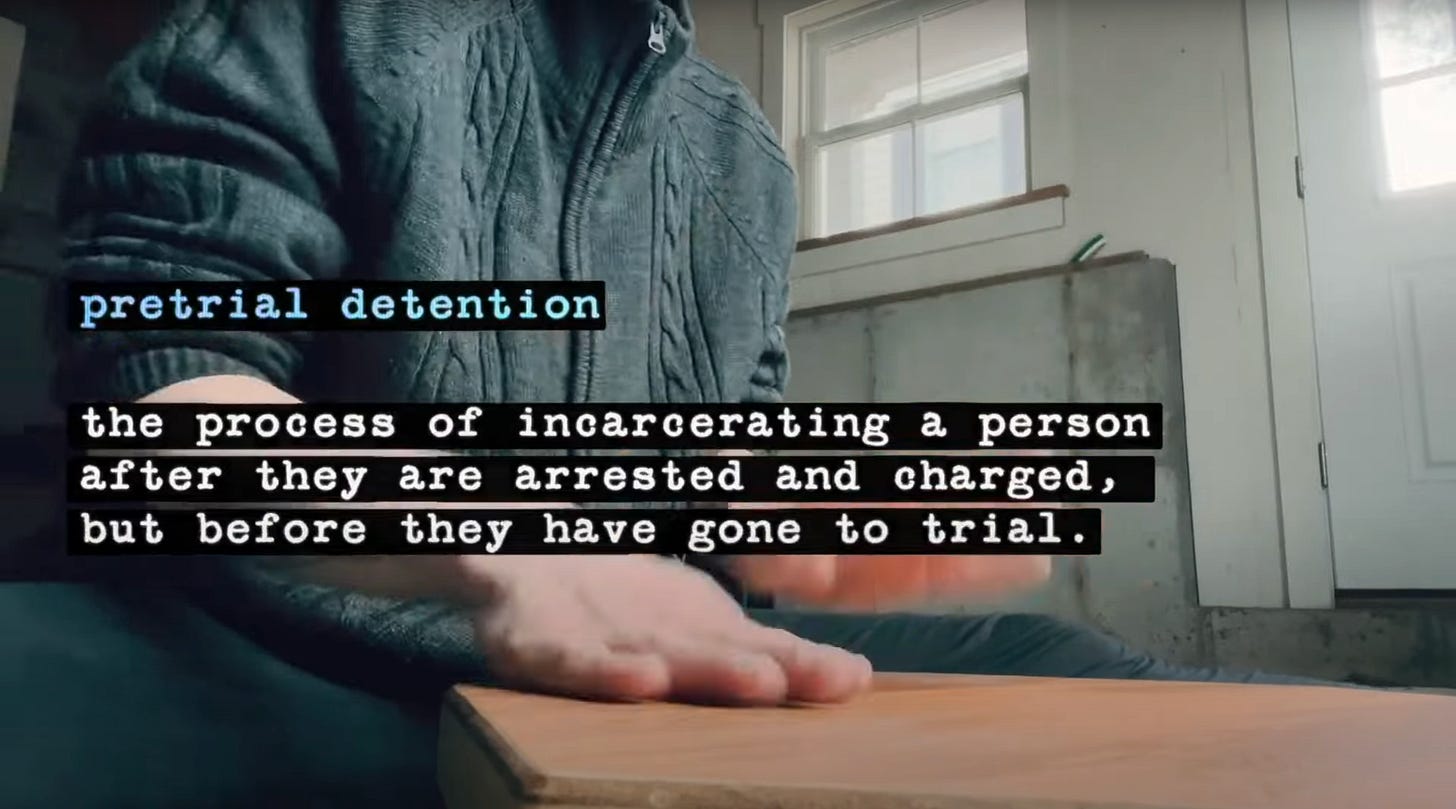
In 2020, during the COVID-19 pandemic, a project known as Gasping for Justice advocated for incarcerated individuals in Prince George’s County jail in Maryland. There was an outbreak that the initiative said was “fueled by the jail’s actions.” Detainees were also kept on lockdown for 23 hours a day, largely due to the inaction of district judges and the Maryland state’s attorney.
Singer-songwriter Fiona Apple participated in the campaign, and then she became a court watcher in the county. She lent her voice to demanding more transparency in Maryland courtrooms (“keep the cameras on”) as well as justice for Black mothers.
“Court watching is really the gateway to a better community, a better world, because it will make you care. It makes you care about people you don’t know. And we need more of that. We really need more of that,” Apple told the Washington Post in 2023.
Fresh off the success of her 2020 album “Fetch the Bolt Cutters,” which won a Grammy for Best Alternative Music Album, Apple volunteered to compose music for a public service announcement from Zealous, a criminal justice media initiative. It was called “The Court Watchers," and Apple narrated the opening sequence, where she described watching virtual bail hearings held via Zoom as the criminal punishment system chugged along amidst the pandemic.
Now, after years of court watching, Apple has produced one of the biggest protest songs of the year called “Pretrial (Let Her Go Home).” The song was released on May 7, and numerous music and news sites have featured this poignant tune that confronts poverty-based incarceration.
“For over two years, I observed thousands of court hearings as a courtwatcher,” Apple declares, in the beginning of the music video. “I saw so many people get caged away simply because they could not afford bail. Before they even got to trial. While still presumed innocent.”
In the video, Apple’s voice pierces the last part of her opening statement.
They wouldn’t let her
They wouldn’t let her, wouldn’t let her go home
They wouldn’t let her go home
They wouldn’t let her go home
They wouldn’t let her go home
And now there’s no home
As Apple additionally makes clear, the detention “didn’t just hurt” the detainees she observed but also their families and “our communities.”
Women held in pretrial detention shared “personal images” with Apple, and she included several of the images in the music video, making it even more clear that she is singing about lived experiences—particularly what Black women in the county endured as they were “touched by a system that won’t let them go.”
The sound of this tune would not have been out of place if it appeared on “Fetch the Bolt Cutters.” It’s stripped down, with Apple effectively using flute and percussion to accentuate her voice as she heart-wrenchingly describes the snowballing impact of the criminal punishment system on impoverished non-white families.
Apple compiled a campaign website to encourage people to find a local bail fund and take action to end pretrial detention.
The Let Her Go Home website has a collection of stories from women who survived pretrial detention.
It also notes:
On any given day, 190,600 women and girls are incarcerated in the United States. Over 60,000 women are detained pretrial, presumed innocent, caged in US jails simply because they cannot afford to pay bail. Their average yearly income is just $11,000. Over 66% are mothers with minor children.
In a statement that Apple shared, she said, “For the past five years, I have been volunteering with the Free Black Mamas DMV bailout, and I have been lucky to be able to witness the stories of women who fought for and won their freedom with the tireless and loving support of the leadership. I hope that this song, and the images shared with me, can help to show what is at stake when someone is kept in pretrial detention.”
“I give this song in friendship and respect to all who have experienced the pain of pretrial detention and to the women of the group’s leadership [in Prince George’s County] who have taught me so much and whom I truly love."
Listen and watch “Pretrial (Let Her Go Home)” by Fiona Apple




